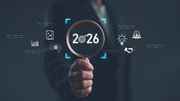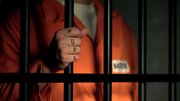Article
HealthZone kiosk helps employees lose weight, earn rewards
Need to get in shape? Virgin Life Care's HealthZone, unveiled at the Self-Service & Kiosk Show, helps motivate people to work out by offering gift cards as incentives.

September 28, 2006 by James Bickers — Editor, Networld Alliance
In an opening seminar at the Self-Service & Kiosk Show, held in San Antonio Sept. 28-29, representatives from Virgin Life Care demonstrated an innovative way to get people to get out of their sedentary routines and into shape — by offering cash-like incentives in the form of store gift cards. The program's excellent slogan says it all: "Tango. Lose love handles. Earn a TV."
The seminar began with a rock-and-roll video introduction to the company, hosted by Sir Richard Branson. (No doubt, this was the first time a company introduced itself to a kiosk-show crowd with a soundtrack made up of Peter Gabriel, Culture Club and the Sex Pistols.)
Virgin is a firm that does many different things — from music and entertainment to travel to cosmetics — and it does them all well. The latest company to be formed by the Virgin group is Virgin Life Care, built upon a health rewards program called HealthMiles.
The program, which has been in pilot in Louisville, Tampa and San Antonio, followed a successful test in the South African market, according to the speaker, Virgin's Richard Boylan.
"Currently, the U.S. healthcare market is focused on curing rather than prevention," he said. "We're geared toward prevention. Education historically has been a primary weapon in reducing costs and changing behavior — but the $93 billion healthcare bill for obesity alone says that isn't working. Consumers need to be both educated and incentivized to make better choices."
Enter the HealthMiles program, which encourages individuals to sign up for an account, then begin working out. Once in the program, they earn miles for exercising, tracking their activity in several ways: the program's Web site, a USB pedometer, and the HealthZone kiosk, designed with assistance and maintenance support from IBM.
The kiosk, designed so that a participant can sit in comfort with absolute privacy, sports an IBM Anyplace touchscreen, plus some top-of-the-line medical and security equipment: a blood pressure cuff and scale from A&D, Futrex body-fat readers and a Digital Persona U.are.U fingerprint scanner. Participants can use the kiosk as often as they want, getting instant feedback on pivotal measurements like blood pressure, body fat, weight and BMI. That information is recorded in the participant's file, making it easy to track improvement over time.
 |
Julie, a member of the San Antonio Spurs Silver Dancers team, demonstrated the Virgin HealthZone kiosk. The Silver Dancers, themselves standard-bearers of physical fitness, were on hand to welcome attendees to the Self-Service & Kiosk Show. |
Spectrum installed 10 of the kiosks in January 2006. Gillen said the average transaction time is less than a minute, and his clients have been thrilled with their results from using the program.
"We have testimonials from people who said ‘Thank you for putting that thing in, because it prompted me to go to my doctor and find out that I needed some work done,'" he said.
Gillen said the average Spectrum member uses the kiosk four to five times a month. The club has 16,000 members registered into the program, and the kiosk has taken 360,000 measurements so far.
Once a participant has earned enough miles, he can convert them into spendable points or gift cards for a variety of retailers.
Boylan said the program comes in two formats: as an employee benefit, and as a component of an individual insurance plan underwritten by Humana. (In the latter case, participants can spend their miles toward their monthly premium.)
For the employer offering HealthMiles as a benefit, the value proposition is strong. Studies clearly demonstrate that healthy workers are more productive, and save everybody money by needing less medical care. The incentives appear to work, too: After three months, 60 percent of participants with high blood pressure normalized their levels, and hospital costs are 60 to 80 percent lower among HealthMiles members than in the general population.
Companies offering the program receive aggregate health data for participation review, engagement and motivational purposes.
"'Aggregate' is a very important word there," Boylan said. "We obviously don't give individual health data to employers, but we aggregate it to give them an overview of their entire health base."
Since the program launched in the United States, the kiosks have logged more than 121,000 visits, taking more than 630,000 measurements. And 50 percent of the program's participants have made the positive move from inactive to active.
Christina Candler had a history of heart disease in her family — and she was overweight, making her heritage doubly troublesome. She joined the HealthMiles program, and soon lost 60 pounds.
"I'd tried other ways to lose weight but never anything where I could track my activity and progress along the way," she said.










